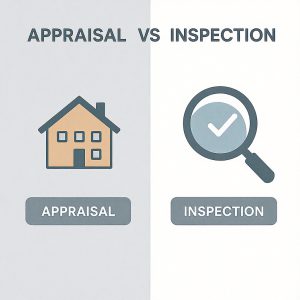Table of Contents
Buying or selling a home is one of the biggest financial decisions most people will ever make. One term that often comes up during the process is importance of home appraisal. But many first-time buyers and even seasoned homeowners aren’t entirely clear on what a home appraisal really means or why it plays such a crucial role in real estate transactions.
In simple terms, a home appraisal is an unbiased estimate of a property’s fair market value conducted by a licensed appraiser. This evaluation protects both the buyer and the lender by ensuring the property is worth the agreed-upon price. In this article, we will explore importance of home appraisal, how the process works, and what factors influence the final value.
What is a Importance Of Home Appraisal?
A importance of home appraisal is the professional assessment of a home’s market value by a certified real estate appraiser. It provides an impartial and accurate estimate of what the property is worth in the current market. Unlike a home inspection (which focuses on the condition of the property), an appraisal determines the financial value of the home.
Lenders typically require a property appraisal before approving a mortgage to ensure the loan amount does not exceed the property’s value. This protects both the bank and the buyer from overpaying.
Why is a Home Appraisal Important?
Understanding the importance of home appraisal can help buyers, sellers, and homeowners make smarter financial decisions. Here’s why it matters:
- Protects Buyers from Overpaying
Buyers gain confidence that they are paying a fair price for the property based on market conditions and comparable sales. - Protects Lenders’ Investment
Banks and financial institutions use appraisals to avoid lending more than the home is worth. - Helps Sellers Set Realistic Prices
Sellers can use appraisal results to price their homes competitively, ensuring a quicker sale. - Critical for Refinancing
When homeowners refinance, lenders require a new appraisal to confirm the current property value before approving a loan. - Legal and Tax Purposes
Appraisals are often used for estate planning, divorce settlements, or property tax disputes.
The Home Appraisal Process
A house appraisal process is structured and follows specific steps to ensure accuracy and impartiality.
Step 1: Scheduling the Appraisal
Once requested by a lender or homeowner, an appraiser is assigned to evaluate the property.
Step 2: Physical Inspection
The appraiser visits the property to examine:
- Size, layout, and square footage
- Number of bedrooms and bathrooms
- Structural condition and overall maintenance
- Quality of construction and materials
- Upgrades, renovations, or repairs
- Curb appeal and landscaping
Step 3: Market Analysis
The appraiser reviews recent sales of similar properties in the neighborhood, known as “comparables” or “comps.” This comparison helps determine how the home fits into current market trends.
Step 4: Final Report
The appraiser compiles a detailed report, including property details, comps, valuation methods, and the estimated market value. This document is shared with the lender and buyer (or homeowner if refinancing).

Factors That Influence a Importance Of Home Appraisal
Several elements affect the outcome of a residential appraisal:
- Location – Proximity to schools, hospitals, transport, and amenities.
- Size and Layout – Square footage, number of rooms, and functional floor plans.
- Condition – Age, maintenance level, and structural soundness.
- Recent Sales (Comps) – Prices of similar homes sold nearby.
- Upgrades and Renovations – Modern kitchens, bathrooms, flooring, or energy-efficient features can increase value.
- Market Conditions – Supply and demand trends in the local housing market.
Common Challenges with Home Appraisals
While appraisals are designed to be objective, challenges can arise:
- Low Appraisal Value: Sometimes, the appraisal comes in lower than the selling price, which can delay or derail a deal.
- Market Fluctuations: Rapid changes in real estate markets can make accurate valuation difficult.
- Unique Homes: Properties with unusual designs or rare features may be harder to compare with local comps.
Tips for Homeowners to Improve Appraisal Value
If you’re preparing for an appraisal, consider these tips:
- Improve Curb Appeal – Simple landscaping and exterior maintenance can boost first impressions.
- Handle Minor Repairs – Fix leaky faucets, chipped paint, or broken fixtures.
- Declutter and Clean – A well-kept interior helps highlight space and functionality.
- Document Upgrades – Keep records of renovations, including receipts and permits.
- Be Present During the Appraisal – Provide useful details about your property to the appraiser.
Home Appraisal vs. Home Inspection
Many people confuse these two processes, but they serve different purposes:
- Home Appraisal: Determines property value for financial transactions.
- Home Inspection: Identifies the condition of the property, highlighting repairs or maintenance needs.
Both are important but serve distinct roles in real estate.

FAQs About Home Appraisals
1. How long does a home appraisal take?
The inspection usually takes 1–3 hours, while the full report may take a few days to complete.
2. How much does a home appraisal cost?
The cost varies by location and property size but typically ranges between $300 and $600 for residential properties.
3. Can a home appraisal be challenged?
Yes, homeowners or buyers can request a review or second appraisal if they believe the valuation is inaccurate.
4. Is a home appraisal always required?
Most lenders require one for mortgage approval, but cash buyers or sellers may choose to skip it.
A importance of home appraisal is a vital part of any real estate transaction. It ensures fair pricing, protects both buyers and lenders, and helps homeowners make informed financial decisions. Understanding the house appraisal process and the factors that influence property value can help you prepare effectively and avoid surprises.
Whether you’re buying your dream home, selling property, or refinancing, a reliable residential appraisal provides peace of mind and financial security.




